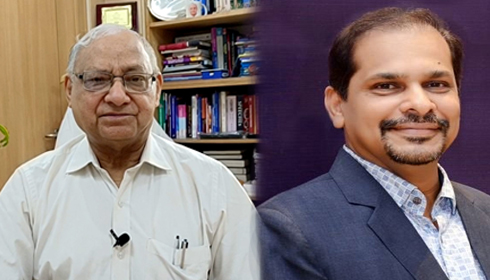
Monkeypox does not spread like COVID19: Experts
Rohit Shishodia
The emergence of cases of Monkeypox in human beings in some countries, where the disease is not endemic, has been making headlines across the globe in recent days and has brought back memories of the early days of the COVID19 pandemic making people uneasy. They are anxious to know the virulence of the disease and whether it will result in lockdown, forcing people to stay in their homes. DTMT spoke to prominent doctors and tried to get an insight into the disease.
Informing about the disease, Dr SP Byotra, Chairman of Department of Medicine and Vice-Chairman, Board of Management, Sir Ganga Ram Hospital, Delhi, said, “Monkeypox is a disease of smallpox group, which used to affect people around 40-45 years ago. As the name suggests, it generally occurs among wild animals. Discovered among monkeys initially, it is found in rats and other rodents, but can affect humans also if they come in close contact with these animals.”
When asked if Monkeypox spreads like COVID19, Dr Byotra, added that while COVID19 spreads through respiratory routes which can easily infect from one person to another, Monkeypox can only spread through close and prolonged contact with infected animals and humans.
Informing about its fatality, Dr Byotra said that it is too early to say it as there are not many cases reported in some countries of Europe, America and Africa.
“It is not an airborne disease. It spreads only through close contact with infected animals. It can also spread through prolonged contact with humans infected with Monkeypox. In Europe most of the cases have been detected among people who have a man to man sex because of probably prolonged contacts,” he added.
“Fever, body ache, headache, rashes on the skin, low appetite, muscular pains, nausea and rashes and pustules on arms and faces are symptoms of Monkeypox,” Dr Byotra informed.
On prevention, he said that those who are engaged in activities that necessitate touching animals’ excreta and blood should protect themselves by wearing gloves and masks. In the event of getting infected, they should isolate themselves as it checks the spread of the disease, which settles down by itself in two to three weeks' time.
President of Delhi Medical Council, Dr Arun Gupta said, “Rapid rise in cases outside Africa is the cause of concern but this virus behaviour is different from that of COVID19 so it is less likely to cause a pandemic.”
“First, the mode of transmission is different. Monkeypox mainly spreads via direct contact, when a healthy individual comes in contact with the body fluid of an infected person or in contact with any article used by that person. In such a scenario, an infected person can infect only a few people who have come in direct contact, which makes contact tracing and isolation easy. Moreover, effective medicine to treat and effective vaccine against Monkeypox is available as it belongs to smallpox family,” Dr Gupta added.